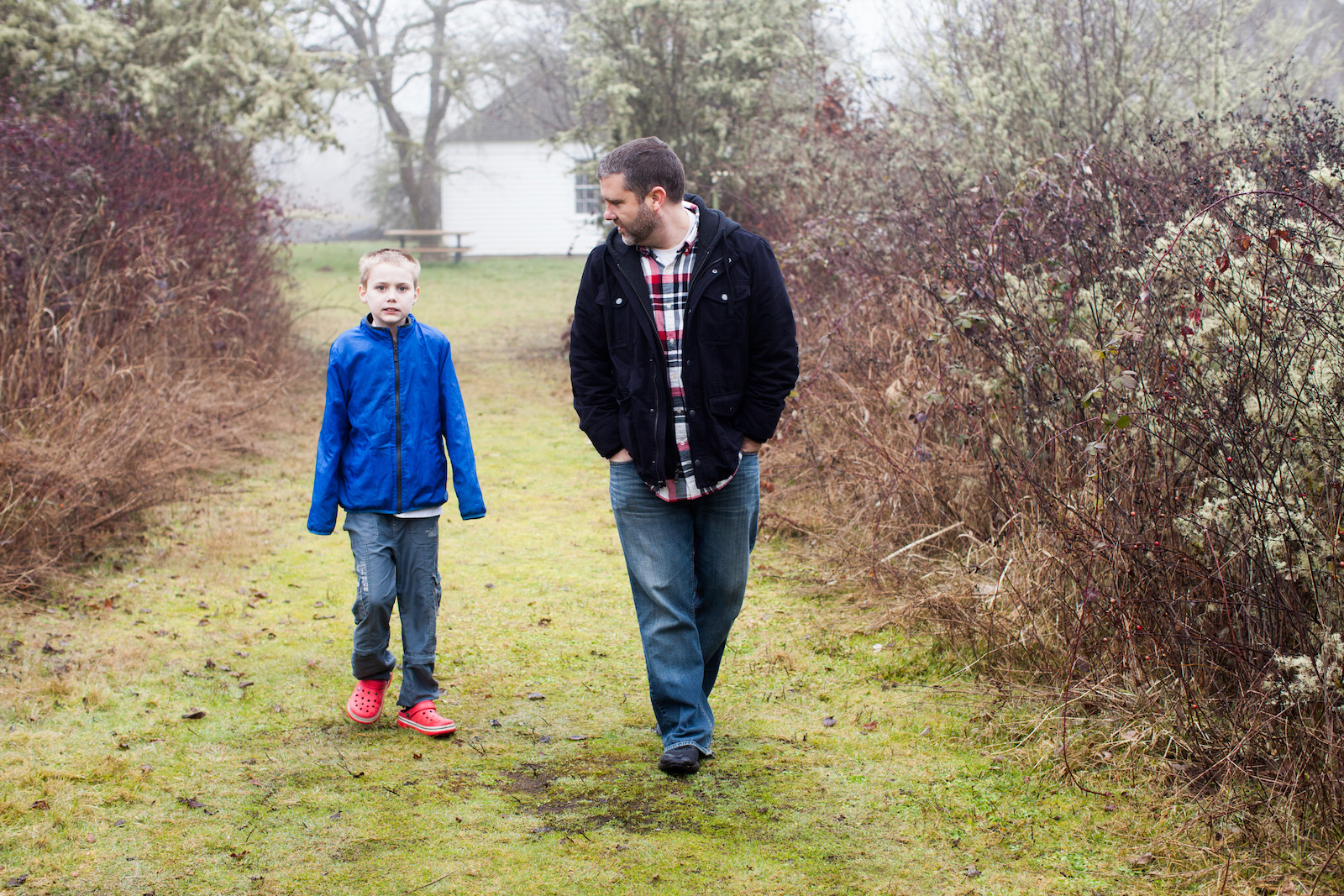When we Can’t Carry them In Anymore
Our church’s special needs classroom used to be a safe haven for my autistic son, Jack. It was a respite for him; a twenty-third Psalm reprieve from the throng of kind, caffeinated congregants hoping to win a “good morning” from him, or at least a hi-five. Not anymore. Six months ago, we moved his beloved “Open Heavens Room” to a larger classroom across the hall. Our boy doesn’t like change, and this change pushed all of his OCD panic buttons. It spooked him.
He refuses to step foot in there now, so he sits with the adults through both the singing and the sermon, eyes glued to a visual timer on his mother’s iPhone.
It’s not a bad trade, in one way. Sara and I would prefer our son to join the congregation and be with his peers, but the arrangement has complicated all of our lives. We work at church, but the whole place makes him antsy now. Someone always has to sit with him through the service in case he tries to bolt without warning, or randomly yells “Syndrome’s remote!” from the Incredibles. Both have happened.
When Jack was little, this kind of thing wasn’t a big deal. We would take the same approach as we would with any of our other kids: we would simply pick him up and carry him into the room against his will. Because he would be fine. Kids get over things quickly, right?
Well, maybe, but he is eleven now, and he’s getting stronger from all that sock flapping. He’s almost as tall as his sisters, and his will has only hardened in his growth spurt. It’s no use trying to force him to do anything he doesn’t want to do. More to the point: it is counter-productive.
The “pick him up and make him go in” phase of parenting is supposed to be short.
Small children are too young to understand why they must brush their teeth every night, or why they have to fasten their seat belts, or why they have to go to class. As parents who do understand, we sometimes have to make those decisions for them. They are growing, however, and soon, they will have to choose on their own. We won’t be able to carry them in anymore.
How do we prepare for that eventuality? By ceding control in small increments. We phase out coercive parenting little by little, and begin to lead instead through influence. We begin to regularly offer them choices, and we explain why some choices are inherently better than others. And while we do all of this, we hope and pray that our children’s comprehension will grow apace with their stature.
But there’s the rub. This hasn’t happened with Jack. In many cases, his understanding (as far as we can tell) hasn’t kept up with his limbs. Sometimes he is just being stubborn like any other eleven year old, sometimes he is overstimulated and overwhelmed, but many times, it seems like he truly doesn’t get it.
My boy is growing, and it’s exciting and wonderful and scary and endlessly complicated.
So how do we lead him? Certainly not by authoritarian measures. Coercion is a last resort now. Jack’s will has begun to blossom, and our tactics have necessarily changed. We have had to stop pushing and start leading.
I suppose in this way, my son is not any different than the rest of us. In order to lead him, you have to invest in him. You have to walk beside him. You have to show him you care about him. You have to build trust, and trust-building takes time.
In our current struggle, I am grateful to have friends who live this principle. Isaac and Lori, who often work with Jack on Sunday mornings and Wednesday nights, are playing the long game, opting to guide him gently. They’ve sat with him. They’ve talked with him. They’ve taken walks past the big, scary door to the Open Heavens Room, and have assured him that everything is going to be okay.
This is what real leadership looks like, and it’s beginning to pay off.
Jack is starting to come around now. He even took a couple steps through the door last week. He kept his eyes shut, but he did it. You can see it in Isaac’s video below.
It will take more time, though, and that’s okay. This is our life now. We don’t rush things anymore. The days of causation and coercion are coming to a close. This is the age of coaxing and calling; of hand-holding and shoulder squeezing; of “take a deep breath, son” and, “you can do this, buddy. I know you can.”
And he will. Just wait and see.
(Many thanks to Isaac for the video and for the patience. We are fortunate to have you in our lives.)
Feature photo by Anne Nunn Photographers

